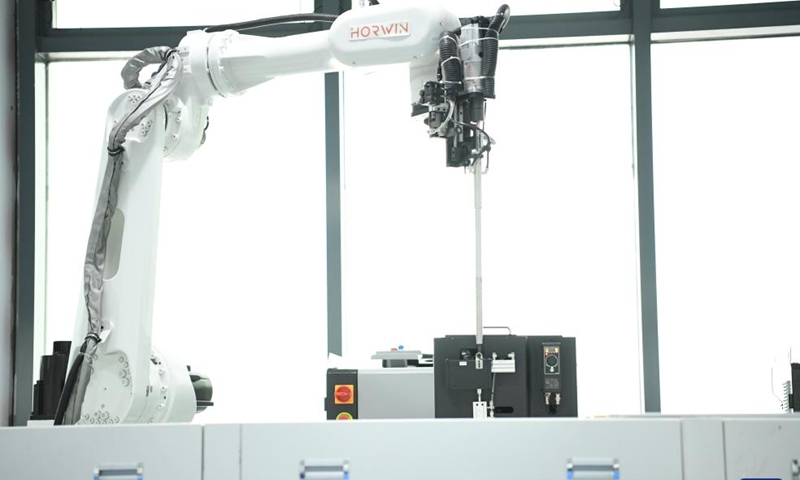China’s industrial production performs strongly in H1 with rising growth and new drivers: report

China has shown major bright spots of continued improvement across industrial production and exports, tied with robust consumer spending throughout the second quarter of this year, reflecting the resilience of the Chinese economy amid challenges, a quarterly report released by the China Finance 40 Forum, a Chinese think tank, said.
The report warned that the current economy still faces headwinds from insufficient domestic demand, adding that more powerful policies need to be introduced.
Value-added high-tech industries increased by 8.7 percent in the first half of the year, higher than the growth rate in the same period last year and the whole year last year. Divided into major categories, production in sectors such as mining and manufacturing have all improved with cumulative added value increasing by 2.4 percent and 6.5 percent, respectively.
From a consumption perspective, consumer spending rose to 65.6 percent in the second quarter, an increase of 0.8 percentage points from the second quarter of 2023, reflecting a more vibrant retail economy, the report noted.
From the perspective of foreign trade, in the first half of the year, both China's imports and exports and trade surplus hit a record high, as exports continued to improve.
The report came after a half-year economic data was released, as China's GDP expanded 5 percent to reach 61.68 trillion yuan ($8.49 trillion) in the first half, demonstrating the resilience and innate strength of the world's second-largest economy.
Among the figures released, retail sales of consumer goods in the first six months were up 3.7 percent, and fixed-asset investment edged up by 3.9 percent. Investment in high-tech industries surged by an impressive 10.6 percent year-on-year.
China's economy has remained stable despite a complex global and domestic environment, achieving parallel growth in quantity and in quality. The figures paint an optimistic portrait of the country's economic performance, according to the National Bureau of Statistics.
The current macroeconomic situation is still facing insufficient domestic demand, Zhang Bin, a non-resident senior fellow at the China Finance 40 Forum and deputy director of the Institute of World Economics and Politics of Chinese Academy of Social Sciences, told the Global Times.
In addressing how to kickstart demand, Zhang suggested that a more proactive broad fiscal policy should be formulated, especially efforts should be made to achieve the annual budget expenditure growth target and boost the financial resources available to local governments.
The report warned that the economy has not yet emerged from a state of low inflation, and the squeezing effect of local government debt and other factors on local government revenue cannot be alleviated as soon as possible, resulting in a weak recovery of the consumption.
Cash flow of real estate companies has not significantly improved, and real estate debt pressure may endanger future financial stability, the report noted.